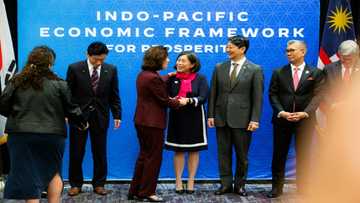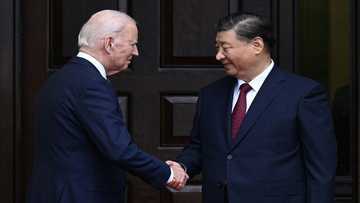US opens way for nuclear investment in energy-hungry Philippines

Source: AFP
The United States on Thursday signed a nuclear cooperation agreement with the Philippines, clearing a path for US investment to jumpstart atomic power in a country racing to expand its electricity supply.
Philippine President Ferdinand Marcos, who has become a close US ally in his more-than one year in power, was on hand when his energy secretary signed the pact with Secretary of State Antony Blinken on the sidelines of an Asia-Pacific summit in San Francisco.
"We see nuclear energy becoming a part of the Philippine energy mix by 2032 and we will be more than happy to pursue this path with the United States as one of our partners," Marcos said.
"Nuclear energy is one area where we can show that the Philippines-US alliance and partnership truly works for our peoples, our economies, and the environment," he added.
Marcos said he was fulfilling an earlier pledge to build "affordable, reliable and sustainable energy supply for the entire country in order to meet our growing energy demands."
The deal signed with Blinken commits the Philippines to safeguards against the use of transferred nuclear material to produce nuclear weapons.
Known as 123 agreements after their section in the US Atomic Energy Act, the pacts are critical for investment by US nuclear companies, which are wary of running afoul of laws related to proliferation.
US Vice President Kamala Harris announced the start of 123 agreements during a November 2022 visit to the Philippines.
Blinken said the one-year completion was the fastest ever for a 123 agreement.
The United States in recent years has enthusiastically embraced nuclear power as a reliable and carbon-free form of electricity, rejecting environmentalists' concerns about the risk of accidents.
"As peak energy demands are expected to nearly quadruple in the Philippines by 2040, nuclear power can consistently produce enough energy to meet the community's critical needs without emitting more greenhouse gases," Blinken said.
The Philippines already has some of the region's highest energy costs and faces a looming crisis as the Malampaya gas field, which supplies about 40 percent of power to the archipelago's main island Luzon, is expected to run dry within a few years.
As part of its climate goals, the Philippines also aims for renewable energy -- not including nuclear -- to make up 35 percent of power generation by 2030 and 50 percent by 2040.
New feature: Сheck out news that is picked for YOU ➡️ click on “Recommended for you” and enjoy!
Source: AFP



